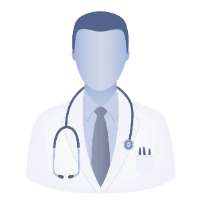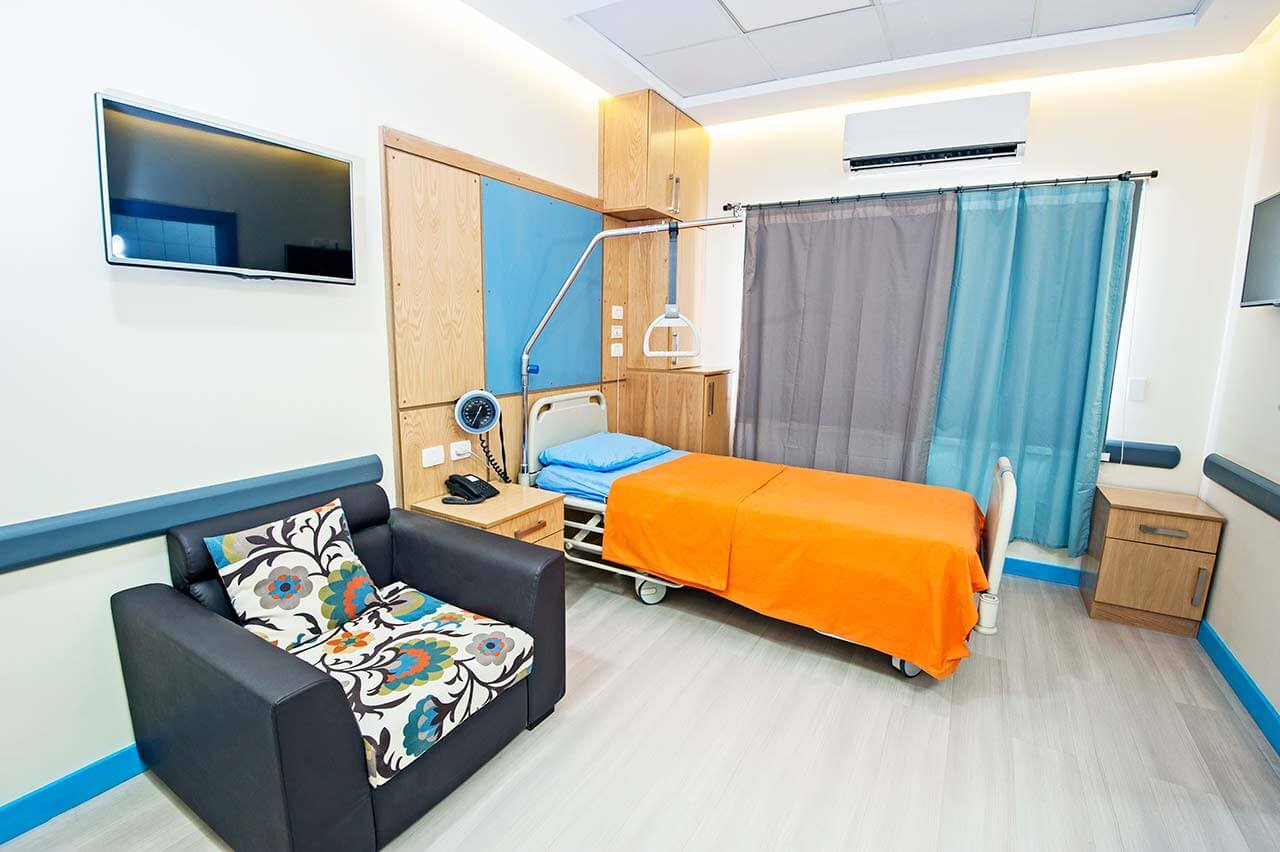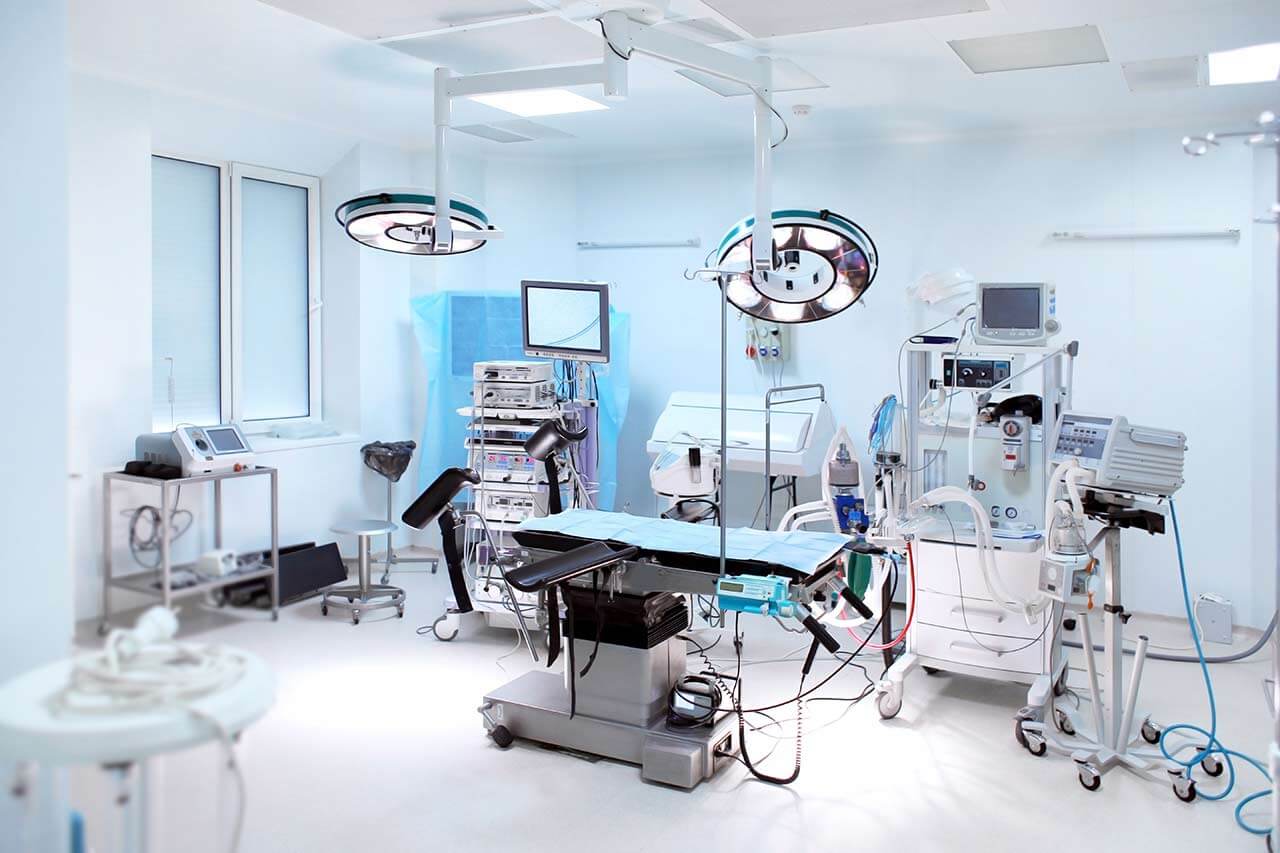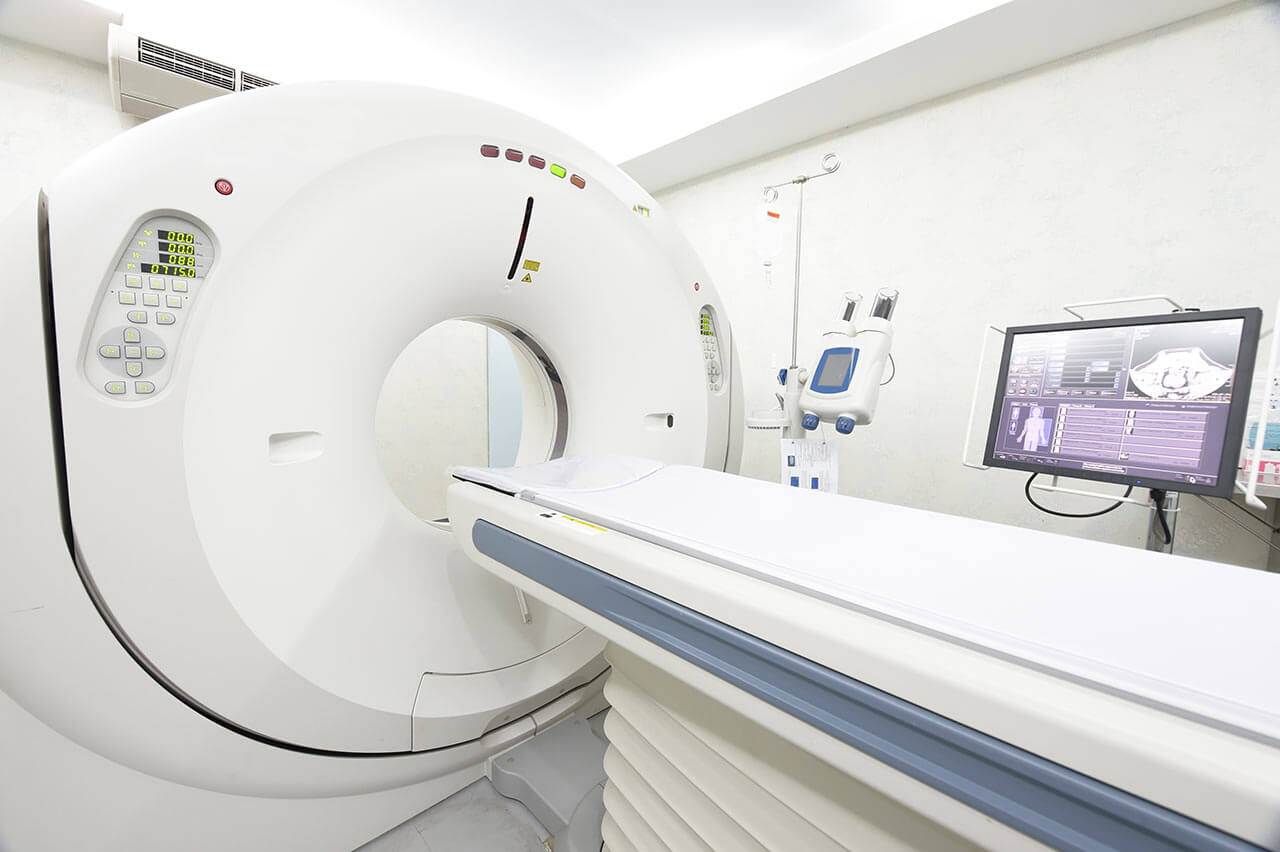
The program includes:
- Initial presentation in the clinic
- clinical history taking
- review of medical records
- physical examination
- laboratory tests:
- complete blood count
- general urine analysis
- biochemical blood test (blood glucose)
- inflammation markers (CRP, ESR)
- blood coagulation analysis (aPTT, PT, INR)
- vitamin B complex analysis
- neurological examination
- electrophysiology study (if indicated clinically):
- ENMG (electroneuromyography)
- EEG (electroencephalography)
- SEPs (somatosensory evoked potentials)
- VEPs (visually evoked potentials)
- BAEP tests (brainstem auditory evoked potentials)
- CT/MRI scan
(if indicated clinically, additional cost is 650/1200€) - nursing services
- differential diagnosis with other neurological diseases
- nursing services
- consultation of related specialists
- treatment by chief physician and all leading experts
- explanation of individual treatment plan
Required documents
- Medical records
Service
You may also book:
 BookingHealth Price from:
BookingHealth Price from:
About the department
The Department of Neurology and Epileptology at the University Hospital Carl Gustav Carus Dresden offers the full range of modern therapy for diseases of the central and peripheral nervous system, as well as neuromuscular pathologies. Of particular interest is the treatment of cerebrovascular diseases (stroke), multiple sclerosis and such neurodegenerative diseases as Parkinson's disease and cerebellar dysfunction. An important focus in the department’s clinical practice is on epilepsy treatment. The department has modern diagnostic rooms, an intensive care unit for patients with severe neurological disorders, as well as many specialized outpatient clinics, including an outpatient clinic for the treatment of multiple sclerosis, an outpatient clinic for amyotrophic lateral sclerosis, an outpatient clinic for the treatment of Parkinson's disease, an outpatient clinic for the treatment of dystonia, an outpatient clinic for the treatment of Wilson's disease, etc. In addition, the department includes a certified Stroke Unit. A total of 71 hospital beds are available in the medical facility. The goal of all the department's specialists is to provide optimal therapy for the sustainable improvement of the quality of life and health of patients with neurological disorders. The Head Physician of the department is Prof. Dr. med. Heinz Reichmann.
The department has a rich and successful experience in the treatment of Parkinson's disease. The basic symptoms of the pathology are rigidity, hypokinesia and tremor. As of today, Parkinson's disease is incurable, and existing therapeutic methods can only alleviate symptoms and improve the patient's well-being. To confirm the diagnosis, a clinical examination, comprehensive laboratory and instrumental tests are carried out. Depending on the stage and severity of the pathology, the most effective treatment is prescribed, namely drug therapy, botulinum toxin injections and/or deep brain stimulation.
Multiple sclerosis is also a severe incurable neurological disorder. The course of the pathology is characterized by remissions and exacerbations, the duration of which can be very different. The diagnostic protocol includes two key tests – magnetic resonance imaging of the brain and cerebrospinal fluid analysis. Doctors prefer a comprehensive approach for the treatment of multiple sclerosis. The specialists prescribe drug therapy (corticosteroids, immunomodulators, plasmapheresis, interferons and other drugs) aimed at relieving symptoms and achieving remission, which can be combined with physiotherapy, massage, therapeutic exercises, botulinum toxin injections to correct spasticity in the extremities and other therapeutic manipulations.
Special attention in the department's clinical practice is paid to epilepsy treatment. Pathology develops due to changes in the electrical activity of the brain and is manifested by seizures. These seizures are short-term episodes of involuntary movements involving a part of the body (focal) or the whole body (generalized). During the epileptic seizure, the patient may experience disorientation, paresthesia, behavioral changes, impaired consciousness, and short-term episodes of amnesia. To make an accurate diagnosis, the accurate differential diagnostics is required using laboratory and instrumental tests. In this case, an important role is played by the clinical examination of the patient, the study of his anamnesis and the characteristics of a previously suffered seizure or seizures. Should the diagnosis be confirmed, the department's doctors begin to develop a treatment regimen. In most cases, epilepsy is treated with modern anticonvulsants. Depending on the particular clinical case, monotherapy can be carried out using only one drug, or the attending physician prescribes the optimal combination of several antiepileptic drugs. The patient needs to understand that the treatment will be long-lasting. In addition, it is extremely important to follow all the doctor's recommendations and take the prescribed dosage of drugs. If drug therapy does not give a satisfactory result, the department's specialists consider more radical therapeutic procedures – deep brain stimulation, vagus nerve stimulation and other interventions.
The department's main clinical focuses include:
- Diagnostics and treatment of stroke
- Diagnostics and treatment of Parkinson's disease and other movement disorders
- Diagnostics and treatment of multiple sclerosis
- Diagnostics and treatment of epilepsy
- Diagnostics and treatment of dystonia
- Diagnostics and treatment of Huntington's disease
- Diagnostics and treatment of Wilson's disease
- Diagnostics and treatment of amyotrophic lateral sclerosis
- Diagnostics and treatment of neuromuscular disorders
- Diagnostics and treatment of dementia
- Diagnostics and treatment of other neurological disorders
The department's therapeutic options include:
- Drug therapy with the very latest medications
- Lysis therapy for stroke
- Deep brain stimulation
- Botulinum toxin injections
- Other treatment methods
Curriculum vitae
Professional Training
- 1973 - 1979 Study of Human Medicine, University of Freiburg, one-year practice in Anesthesiology (elected medical direction).
- 1979 Admission to medical practice.
- 1979 Doctor of Medicine, Faculty of Medicine, University of Freiburg (03.12.1979), doctoral thesis defense with honors. Subject: "Study of the kinetics of binding of strophanthin to the membrane of an intact erythrocyte: the interaction of intracellular sodium and potassium ions, the role of proton concentration and membrane potential".
- 1980 - 1983 Scholarship of the German Research Foundation and the Fritz Thyssen Foundation (special program for especially gifted young scientists), Department of Biochemistry, University of Konstanz.
- 1981 - 1983 Scientific internship at University College London, research devoted to the physiological analysis of dystrophic changes in muscles.
- 1983 - 1984 Scholarship of the German Research Foundation at the Neurological Institute, Columbia University, New York.
- 1988 Habilitation, Neurology (paper devoted to mitochondrial myopathies), as well as Venia legendi.
Professional Career
- 1984 - 1987 Work in public and private clinics, in the intensive care unit of the Department of Neurology at the University Hospital Wuerzburg.
- 1987 Work in the emergency care unit (for one year) in the Department of Psychiatry at the University Hospital Wuerzburg.
- 1987 Neurologist.
- 1988 Clinical Senior Physician.
- 1988 - 1989 Specialized training in Neurophysiology.
- 1990 - 1996 (C3) University Professor for Neurology, Senior Physician and Deputy Head of the Department, Head of the Laboratory for Metabolism and Energy, Head of the Laboratory for Biochemical and Morphological Muscle Activity.
- 1992 - 1996 Board Member of the Faculty of Medicine, University of Wuerzburg.
- 1992 - 1996 Ethics Committee Member of the University of Wuerzburg.
- Since 1996 Head of the Department of Neurology and Epileptology at the University Hospital Carl Gustav Carus Dresden.
- Since 2005 Dean of the Faculty of Medicine, Dresden University of Technology.
- 2009 - 2010 1st Chairman of the German Neurological Society.
- 2011 - 2012 President of the European Society of Neurology.
Awards and Honors
- 1984 Prize for Young Professionals in Histochemistry of the International Histochemical Society.
- 1987 Prize of the International Society for Cerebral Blood Flow and Metabolism.
- 1988 Heinrich Pette Prize of the German Neurological Society.
- 1988 Award for the 400th Anniversary of the Foundation of the University of Wuerzburg.
- 1991 Award for Myopathy Treatment from the German Society for Muscle Diseases.
- 1992 1st Poster Award, Saarbruecken Neurology Congress.
- 1993 Award for Research on the Central Nervous System in the Elderly.
Research Focuses
- Biochemical tests of energy metabolism and its disorders in the central nervous system, muscles, fibroblasts and blood cells.
- Since 05.01.1986 Research of mitochondrial cytopathies with the support of the German Research Foundation and Research Laboratories of the Department of Neurology at the University Hospital.
- 1989 - 1992 Measurement of muscle fibers, supported by a research project from the Wilhelm Sander Foundation.
- Since February 1992 Research of the biochemical and molecular biological aspects of Parkinson's disease with the support of the Federal Ministry for Research and Technology, Union of Frankfurt-Wuerzburg.
- Since September 1992 Research of the basal ganglia and their pathologies with the support of the Federal Ministry for Research and Technology, Union Marburg-Goettingen-Wuerzburg.
Memberships in Professional Societies
- American Neurological Association.
- American Academy of Neurology.
- New York Academy of Sciences.
- Royal College of Physicians, London.
- Movement Disorder Society.
- German Neurological Society.
- German Society of Neurogenetics.
- Working Group on Neurological Intensive Care.
- Saxony Scientific Society for Neurology.
Photo: (с) depositphotos
About hospital
According to the reputable Focus magazine, the University Hospital Carl Gustav Carus Dresden ranks among the top five German hospitals!
The hospital is the benchmark for modern high-quality medicine. Positioning itself as a maximum care medical facility, the hospital represents all medical fields. There are 26 specialized departments, 6 institutes and 17 interdisciplinary centers, which cooperate closely with the clinical and scientific facilities of the Faculty of Medicine. The basis of successful practice is excellent equipment, which is regularly updated, as well as highly qualified, experienced medical personnel: world famous doctors and professors work here for the benefit of patients.
In addition to its main goal of caring for patients, the hospital is also active in training and professional development of medical personnel, as well as in the field of public health care. The priority focus of the work is research activity, which allows the doctors to introduce the innovative diagnostic and therapeutic techniques into clinical practice.
A special feature of the hospital is also the diagnostics and treatment of rare diseases. State-of-the-art equipment and well-coordinated work of doctors of various medical specialties make it possible to timely recognize pathologies rarely encountered in medical practice and select the most effective therapy. Specialization in rare diseases include neurology, endocrinology, hematology/oncology, and rare autoimmune diseases.
The hospital has 1,410 beds for patient hospitalization. About 55,900 inpatients and more than 233,975 outpatients undergo treatment here annually. A large medical team, consisting of about 1,000 highly qualified doctors, as well as over 2,000 nursing staff take care of the patients' health. Each patient is guaranteed an individual approach and the most effective treatment in accordance with current clinical protocols.
It should be noted that the university hospital enjoys an impeccable reputation not only in Germany, but also far beyond its borders, including Arab countries, post-Soviet states, Great Britain and the United States. Patients from different parts of the world come here for high-quality treatment for diseases of any severity. The highest credit of patient confidence is the main indicator of the fruitful work of doctors.
Photo: (с) depositphotos
Accommodation in hospital
Patients rooms
The patients of the University Hospital Carl Gustav Carus Dresden live in comfortable rooms made in bright colors and equipped with everything necessary. The standard patient room includes an automatically adjustable bed, a bedside table with a sliding table, a wardrobe, a telephone and a TV. There is also Wi-Fi (free) in the patient rooms.
If desired, patients may live in enhanced comfort patient rooms. These patient rooms have a more sophisticated design, upholstered furniture and a safe for storing valuables.
Meals and Menus
The patients of the hospital are offered a tasty, healthy and varied three meals a day. The menu is based on local cuisine and seasonal food. If you for some reason do not eat certain products, please inform the medical staff of the hospital in advance, and you will be offered an individual menu. The nutrition provided in the hospital is certified in accordance with the quality standards of the German Nutrition Society (DGE) for catering in German hospitals.
Further details
Standard rooms include:
Religion
The religious services are available upon request.
Accompanying person
Your accompanying person may stay with you in your patient room or at the hotel of your choice during the inpatient program.
Hotel
You may stay at the hotel of your choice during the outpatient program. Our managers will support you for selecting the best option.
The hospital offers a full range of laboratory diagnostic procedures (general, hormonal, tests for tumor markers, infections, antibodies, etc.), genetic tests, various modifications of ultrasound scans, CT scans, MRI and PET / CT, angiography, myelography, biopsy and other examinations. Treatment with medications, endoscopic and robotic operations, stereotaxic interventions is carried out here, modern types of radiation therapy are also used. The hospital offers patients all the necessary therapeutic techniques.
- Cochlear implantation
- Deep brain stimulation
- Treatment of benign prostatic hyperplasia with green laser
- Da Vinci prostatectomy
- Bone marrow transplantation
These are head and neck tumors, hearloss, amyotrophic lateral sclerosis, epilepsy, Parkinson disease, infertility, malignant tumors of the reproductive system, congenital anomalies of the genital organs and the urinary system, urinary incontinence, blood clotting disorders, leukemia and other pathologies.
- Otolaryngology (Center for Cochlear Implantation)
- Neurology and Epileptology
- Urology
- Oncology
- Gastroenterology and Hepatology
About 1,000 highly qualified doctors work at the hospital.





